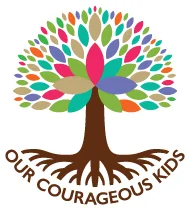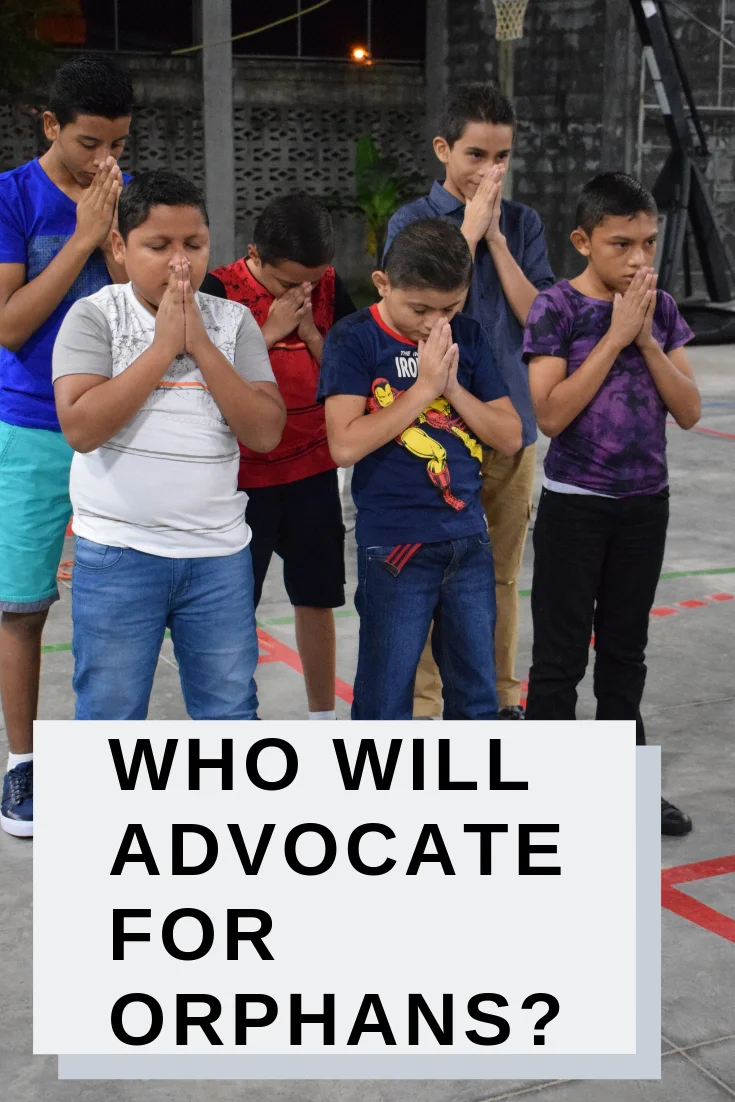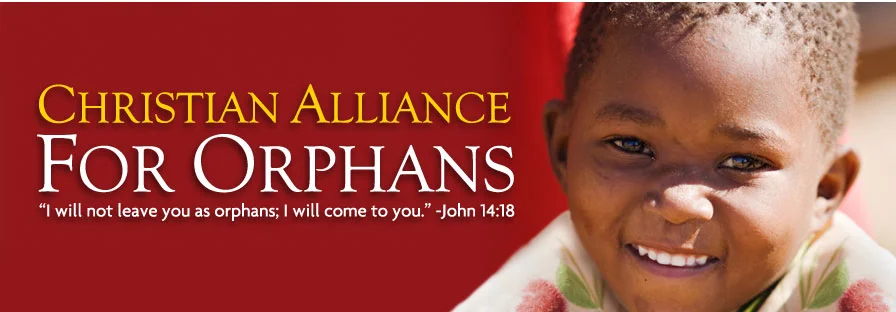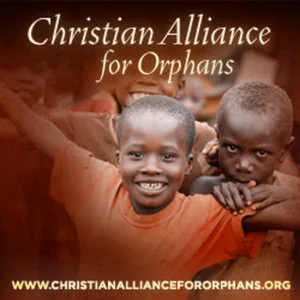So many of you who read my posts are known for your justice work.
You march.
You write op-eds.
You give money to organizations that bring wholeness and healing to the world-- causes of all kinds.
However, when it comes to orphan care, foster care and adoption, I’ve noticed we don’t talk as much about this kind of work. Nor do we as people of faith, especially those of us in the progressive camp, direct much of our advocacy work in this direction. Though current stats tell us this story of a great area of need:
When Kevin, my husband, became the head of a global relief and development organization in 2012, our family began to see this need right in front of us. We met children from all over the world who not only struggled to have enough food to each, but who also were living without one or both parents. We saw children who might have had big dreams of going to college without any adult in their life to support them. We learned so much about how a child or teen never outgrows their need for family.
While we were open to adoption (and eventually did become adoptive parents), a new calling stirred in both of us to be a part of orphan care even outside of our home or paid jobs.
 This new thing in my life grew to have a name: Our Courageous Kids. It's a foundation incorporated with the full blessing of an IRS 501(c)3 status that is raising funds as we speak to give grants to kids growing up in international orphanages to allow them to go to college or graduate school. It also seeks to support other special experiences with the intention of raising a child's hope like special field trips or Christmas gifts.
This new thing in my life grew to have a name: Our Courageous Kids. It's a foundation incorporated with the full blessing of an IRS 501(c)3 status that is raising funds as we speak to give grants to kids growing up in international orphanages to allow them to go to college or graduate school. It also seeks to support other special experiences with the intention of raising a child's hope like special field trips or Christmas gifts.
I'd love for you to go over to this website and learn more about what I've been up to the past year and/or consider partnering with us as one of our donors.
Children need to be fostered domestically!
Children need to be adopted domestically and internationally!
Children living in foster homes or international orphanages need to know their stories are valuable, their dreams are important to somebody and that they have more family than they realize that are cheering them on!
Such are overwhelming asks, I know. But, I believe the answers to these needs often lie somewhere in our communities. And baby steps of action begin when we connect with organizations like Our Courageous Kids and countless other groups who are pioneering a movement to champion some of the most vulnerable children among us.
If you're a church person, one easy way to plant the seeds in your congregation would be to observe Orphan Sunday as we will be doing this Sunday at The Palisades Community Church in Washington, DC this November.
Orphan Sunday is a national emphasis sponsored by the Christian Alliance of Orphans geared toward helping churches remember the calling of James 1:27 which says, “Pure and genuine religion in the sight of God the Father means caring for orphans and widows in their distress.”
If you observe it, it’s a great day to share statistics about the need for foster parents in your community. It’s a great day to have folks who have adopted domestically or internationally share stories about this faith journey in their lives. It’s a great day to speak to God’s heart for the vulnerable children in the children’s time or in the sermon.
If you would like more information about planning your own Orphan Sunday, you can read more here or feel free to contact me.
Dear readers, know that orphan care is work you'll hear me talking a lot about for a long time. For me, it's one way how the faith I teach and preach about finds action. If you're up for it, pull up a seat with me and join the ride as I learn. Consider following Our Courageous Kids' blog if you want to have a front seat for the adventures that lie ahead. I know it will be fun. 
 The juxtaposition of my life these past couple days has been interesting—attending a Christian conference discussing orphan ministries and global poverty in a well-to-do suburb of Nashville, TN to now being among kids in poverty in rural villages in Guatemala assisting with feeding programs with the staff of Feed The Children.
The juxtaposition of my life these past couple days has been interesting—attending a Christian conference discussing orphan ministries and global poverty in a well-to-do suburb of Nashville, TN to now being among kids in poverty in rural villages in Guatemala assisting with feeding programs with the staff of Feed The Children.
There’s still much to process. But for now, this is what is coming together in my mind:
One of the best experiences of the Christian Alliance for Orphans Summit for me was the breakout session I attended called, “Straight Talk from Adult Adoptees.”
In the session, a packed room, three adults and one older teen led a panel discussion about growing into maturity from their experiences as adopted children.
Feelings such as “I hated my birth parents or birth country for abandoning me” to “I always knew my birth parents loved me, until they got a divorce . . . “ to “I never really understood why my birth parents would give me up” were shared openly.
But, then the discussion got complicated. We quickly learned there would be no “one sized fits all” answers or even the luxury that “being adopted” would be the defining experience of the panelists’ lives.
One of the adult adoptees shared how her trust issues were complicated by the fact that she learned her adoptive father only agreed to her adoption to save his marriage—which indeed didn’t happen as they divorced six months after her placement with family. She talked about her mother’s complicated re-marriage processes and then shared about the recent death of her adopted mom. All experiences of great loss . . .
But before our minds in the audience could single out her experience as “oh so bad” this adult adoptee stopped us saying directly to us: “Everybody in their life has pain. I have friends who have been through great losses too—deep woundedness that follows them as mine does me. . . . It just so happens that mine is more understandable than some with the label of adoption.”
It was a light bulb moment for me.
She spoke the truth: everybody has deep pain. Everybody is wounded. It's not an adoption issue. It's a human issue.
Being adopted and coming to turns with the abandonment part of it is just one of the ways that deep pain of this broken world can find a person early in life.
Pain is pain. Grief is grief. Loss is loss. And it is something we all understand, the more honest we become with our own story. Experiencing pain is a part of what it means to be human. Experiencing pain is part of what connects us to other human beings.
 Fast forward to this morning as I spent the day with the Feed The Children staff in Guatemala and several other guests at one of our feeding centers in rural Guatemala. As we visited with the kids, played games like hitting the piñata in search for candy, read stories to them, and then of course served a meal (rice with some chicken mixed in, cucumbers and radish salad, and tortillas), I couldn’t help but think about these kids’ pain.
Fast forward to this morning as I spent the day with the Feed The Children staff in Guatemala and several other guests at one of our feeding centers in rural Guatemala. As we visited with the kids, played games like hitting the piñata in search for candy, read stories to them, and then of course served a meal (rice with some chicken mixed in, cucumbers and radish salad, and tortillas), I couldn’t help but think about these kids’ pain.
I thought about the pain these kids may not have words to speak of right now, but pain that will follow them because of the kind of livelihood they were born into.
For, these were kids who came to the center in tattered clothing, dirty faces and shoes that didn’t seem to fit right.
These were kids who starred often at us “white people” with the cameras taking pictures of the festivities with the look of “Wow, what a nice life you have!”
These were kids who have walked to walk miles to school, many of whom depend on the donated shoes from TOMS (one of Feed The Children’s partners) in order to get there safely.
These were kids with great needs, more than I can mention in this post (though of course thanks to the generosity of FTC contributors and sponsors many of these needs are getting met).
They know pain.
Though I did not grow up in a home that struggled to provide me with basic life necessities, I can identify with them. I can identify with their loss, even if it may not be to the degree that their loss is to them.
For at the end of the day, we all just want to be loved. We all just want to know that someone cares about us in particular. We all want not to worry about where our next meal will come from or that we’ll have clean clothes to put on the next day. We want to feel secure in a family system, orphaned or not.
And I believe that when we all get to the point in our lives when we see our stories as broken, as in need, and most of all full of pain of one kind or another—we are given a great gift.
We're given the ability to more honestly look into the eyes of our brothers and sisters in humanity, knowing we’re from the same family. All of us. Because of this, we need each other more than we ever thought.
Who is the church called to care for?
Who is the church asked to speak for?
Who is the church told to lift up?
For those of us who believe in the mission of the church, each of us has our favorite answers to these questions.
Many say the church is called in mission to the poor or the widows, or the sick.
Many say the church is called to speak for those without a voice.
Many church is called to pray for those who are often left out or ignored in remote places of our local communities and around the world.
 But, I'm learning this week that there are a growing number of Christians and Christian churches who answer these questions by specifically by saying: "God calls us to care for, to speak up, and to lift up the orphans."
But, I'm learning this week that there are a growing number of Christians and Christian churches who answer these questions by specifically by saying: "God calls us to care for, to speak up, and to lift up the orphans."
I'm attending the Christian Alliance of Orphans Summit Conference in Nashville, TN as a representative for Feed The Children exploring what relationship with this Christian Alliance might look like in the future. And here with folks who deeply care about the church's mission going forth in care of children who have been abandoned, malnourished, or without the basic life essentials to achieve their greatest potential, I've had some shocking revelations.
It has been shocking to see how many folks are here in the middle of the week (organizers say it's the largest turn out ever in its history). Starting only with 45 folks sitting around shared tables only 9 years ago and now more than 2,000 . . .
It has been shocking to learn about how many churches around the country host "Orphan Sundays" each year-- in an effort to spread the message about the plight of orphans around the globe. Big mega churches, medium-sized churches and tiny ones alike . . .
It has been shocking to see such passionate conversation between all sorts of church folk around the exhibit hall asking such questions as "What more can we do to raise awareness about these children who need us to care for them?" Folks from all corners of the spectrum of theological camps, conservative, liberal, you name it. ..
And it is good to be shocked. It is good to see so many folks in James 1:27 t-shirts (the adoption theme verse). It is good to see so many interracial families and families full of kids with special needs and families putting action to their faith instead of words only.
It is good to be learning in community.
It is good to be so proud of the organization I know best, Feed The Children-- a group that has been working since 1979 around the globe to bring attention to children in poverty including orphans.
If you are interested in joining the movement: click here to learn more.